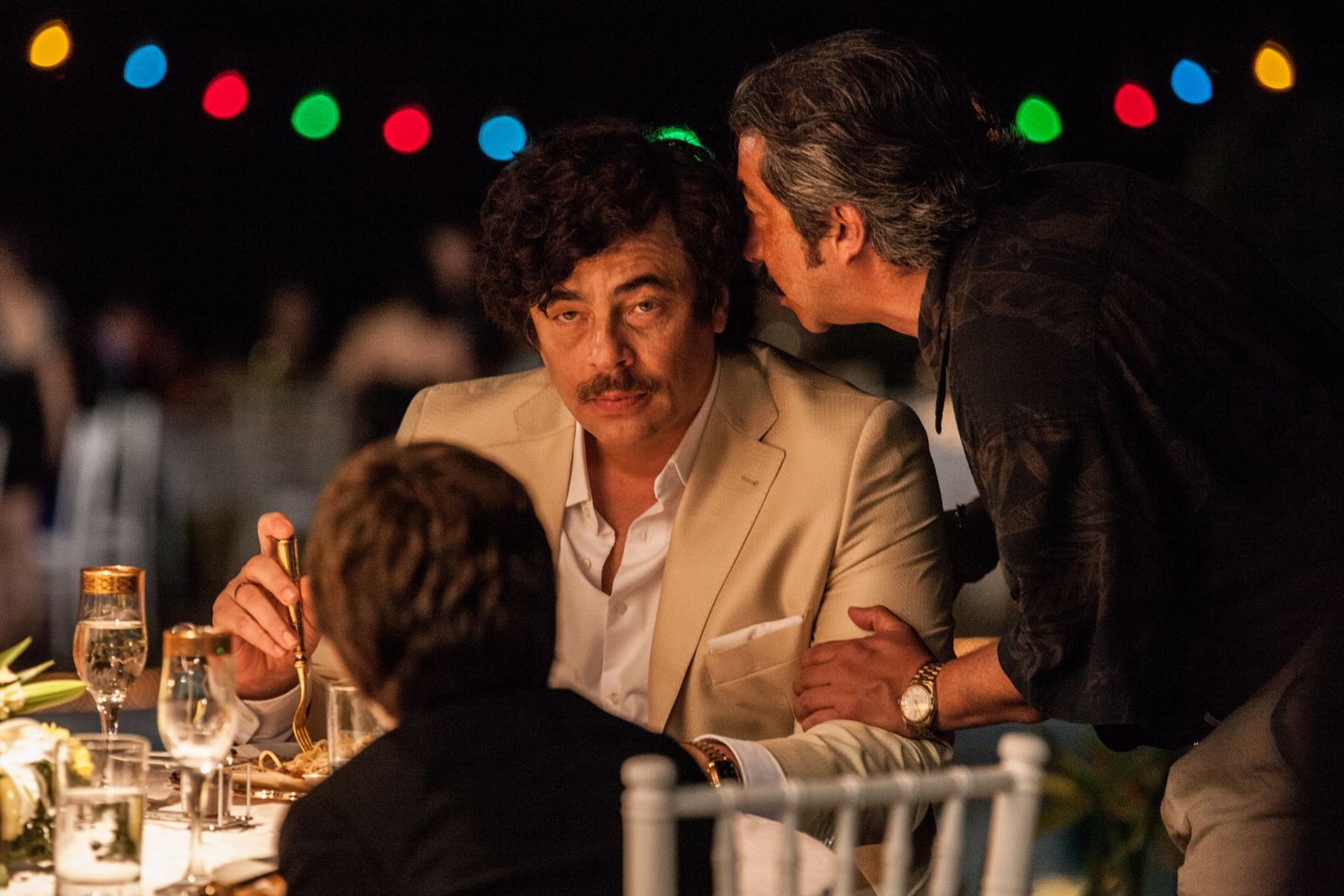
"When you enter the town, a man will come up to you and ask for a number. You will answer '72'." Such is the opening gambit of a plan which involves driving up a mountain with the stranger, hiding a treasure in an old mine shaft, then shooting the unsuspecting guide in the head. "Don't talk to him too much beforehand, that will make killing him easier," advises Pablo Escobar, Colombia's notorious drug baron (Benicio Del Toro).
The man he instructs could hardly be less suitable for the task: Nick (Josh Hutcherson) is not a contract killer but a Canadian surfer who had the misfortune of losing his heart to Escobar's niece Maria (Claudia Traisac). A boy-next-door not cut out to be a member of Latin America's most dangerous clan, the young man finds himself trapped in a bloody war between Escobar's cartel and the Colombian government. While the unfortunate hero of Andrea Di Stefano's directing debut Escobar – Paradise Lost, is fictional, the historical backdrop is not.
In his heyday Pablo Escobar made an estimated $30 billion a year, ranking seventh in the list of the world's richest people. A ruthless criminal who saw nothing in blowing up a fully manned airplane, he also built hospitals and 5,000 houses for the poor. The subject of much veneration, he dabbled in opera singing and politics. His lavish estancia sported a private zoo with giraffes and elephants and his private army included 3,000 hitmen. Celebrated by many Colombians as a modern-day Robin Hood, he had more than 6,000 people murdered in a single year. The man who exported as much as 15 tonnes of cocaine to America per day was full of dizzying contradictions: greedy yet generous, narcissistic yet selfless, affectionate yet murderous.
Playing such a singular character is tempting for any serious actor, and Benicio Del Toro meets this challenge with awe-inspiring perfection. He walks the line between the hugely likeable teddy-bear Escobar seemed to his loved ones and the merciless don he was to others. Later on, when government forces are closing in on him, Del Toro's Escobar has the air of a persecuted saint. Nick falls under the spell of this extraordinary character. Bright and fresh-faced, he seems the exact opposite of someone who might embark on a criminal career. He comes to Latin America to help his brother run a beachside bar for surfers.
Nick falls in love with Escobar's niece. Maria has the angelic sweetness of a princess, combined with the personal magnetism that runs in her family. In her world view, she is perfectly in line with her uncle, seeing cocaine as simply "Colombia's national product". Shocked when he realises he has eloped with the niece of the world's most wanted criminal, Nick can't help being dazzled by the uncle's incredible wealth, power and pizzazz.
Escobar is fatherly to the young man, flattering him with his attention and helping Nick's brother with thugs trying to extort him. Settling in as a prince in the uncle's empire, Nick comes to feel complicit in the older man's crimes. When the battle between the drug cartel and the government heats up and the US moves to help in the manhunt, he is pulled into a vortex of evil and destruction.
While the film takes an act or two to grind into gear, both the action and stand-offs of the second half make gripping viewing. At every twist one feels inclined to shout to Nick to finally quit, but the witchcraft of Maria's love keeps him put, readying him for Escobar's horrific deeds. As the lines between hunter and hunted, good and evil, criminal and saint get increasingly blurred, the young Canadian comes to realise that he has himself become one of the unfortunate men whom Escobar judges "dispensable".
Sympathy for the evil
There are moments in Escobar: Paradise Lost in which one unwittingly pities the criminal. Considering the incredible carnage Escobar was responsible for, one might easily blame the filmmaker for being manipulative. Yet showing evil people in their most vulnerable and personal moments drives home an important truth: even a murderous psychopath is not a monster, but a human like everyone else. This makes films such as Downfall or The Silence of the Lambs so resonant. We need to come to terms with our capacity for evil that, unfortunately, has nothing to do with the creepy otherness of fairytale ogres, but with our make-up as human beings.
Uncommon Knowledge
Newsweek is committed to challenging conventional wisdom and finding connections in the search for common ground.
Newsweek is committed to challenging conventional wisdom and finding connections in the search for common ground.





